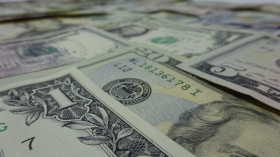The US dollar ended the week mostly soft despite escalation of the US-China trade conflict. Markets largely brushed off the news, and traders showed more interest in riskier higher-beta currencies instead of safer ones.
The United States implemented a 10% tariff on $200 billion of Chinese goods, and China promised to retaliate in a similar manner. Yet markets showed muted reaction to the news. In fact, the currencies of Australia and New Zealand, countries most dependent on the well-being of China, were the strongest ones for the week. The New Zealand dollar also had its own supporting factor in the form of faster-than-expected economic growth.
In other news, trade negotiations between the United Kingdom and the European Union did not bring any noticeable result. Trade talks between the United States and Canada also demonstrated high chances of failure.
Meanwhile, the central bank of Norway decided to raise interest rates and predicted more rate hikes at the beginning of the next year.
EUR/USD gained from 1.1621 to 1.1745, touching the weekly high of 1.1803. AUD/USD jumped from 0.7151 to 0.7286. NZD/USD surged from 0.6545 to 0.6676.
If you have any questions, comments or opinions regarding the US Dollar,
feel free to post them using the commentary form below.
US Dollar Ends Week Soft as US-China Trade War Becomes Non-Event
